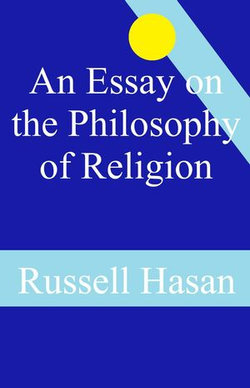The purpose of this book is to explore faith in a new and provocative way. Its goal, without explicitly advocating for any specific religion, is to make the reader consider religion in a new and interesting light, and to think thoughts about God which they might never have considered before. The major theme which runs through this text as a work in the philosophy of religion is the notion that the old idea that religion and science are in conflict, and that reason and faith contradict each other, is false, but the many classical arguments for that position are themselves also false, and what is needed is a new set of arguments to show that religion and science both come from God, that reason and faith are in harmony as two gifts which God has given to humans.
This book takes a new, fresh approach to the issue of religion and science, and faith and reason, giving bold new arguments and debunking old myths, such as the idea that science paints a picture of a world without God (which is false, because God created the Universe, and it is a Universe which obviously and manifestly obeys the laws of math and science, biology, physics, chemistry, logic, etc.), that reason is inherently opposed to faith (which is false, because reason can be used to construct doubts, but it can also be used to argue against doubts), the idea that if God controls all things then free will and chance cannot exist in the world (which, again, is false, because God created free will and God created chaos, therefore their existence, ever so far from contradicting the power of God, relies on the fact that God is the Lord of all things), and the idea that if God is good then He would not allow evil to exist (which is false because, if humans have free will, then of course evil can exist, because free will is the ability to choose between good and evil, therefore the existence of evil is merely a natural byproduct of God's greatest gift, the blessing to humans of a merciful and benevolent Lord, the gift of free will, which gives us our souls and puts the meaning into our lives).
Students of philosophy, scholars of religion, Jews, Christians, Muslims, Hindus, Buddhists, and anyone who wonders about faith and the presence of God in their life, should read this book.



Share This eBook: